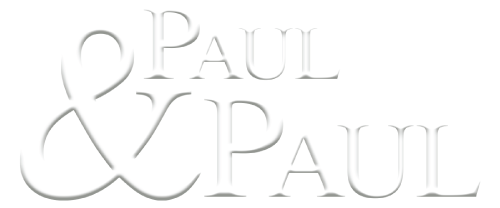Algorithms play a crucial role in driving innovation across various industries. As more businesses seek to protect their algorithmic inventions through patents, understanding the legal criteria for patent eligibility in the U.S. becomes essential.
The intricacies of patenting algorithms in the U.S. shed light on the intersection of technology and intellectual property law. For advice on navigating the complexities of algorithm patent eligibility, contact Paul & Paul for experienced lawyers in U.S. Intellectual Property Law.
Understanding Algorithms and Patent Law
Algorithms are a sequence of instructions or a set of rules designed to perform a specific task. They stand at the epicenter of technological advancements, powering everything from search engines and social media platforms to digital assistants and autonomous vehicles. They represent the invisible but indispensable cogs in the machine of contemporary technological developments.
But how does patent law treat these not-so-physical inventions? Under U.S. patent law, algorithms fall into a category that is particularly challenging to protect. Patents protect the application of an idea, not the idea itself. This is a concept that comes to the forefront when dealing with intangible elements like algorithms.
It’s essential to understand that algorithms, as abstract ideas, are generally ineligible for patent protection in the U.S. However, if the algorithm is part of a method that provides a solution to a technological challenge, that method could potentially be patented. The legal treatment of algorithms is largely determined by how they are applied within a broader technological context.
The Intersection of Algorithms and Patent Eligibility
Several factors need to be considered in the legal assessment of patents related to algorithms. The U.S. Supreme Court has established standards in various precedents, setting the stage for understanding patent eligibility for algorithms. Notably, the landmark Alice Corp. vs. CLS Bank case has set the two-part Alice/Mayo test for software and algorithm-related patents. This test probes the presence of an “inventive concept” that transforms an abstract idea into a patent-eligible invention.
Key Factors Influencing Patentability of Algorithms
Eligibility for patenting an algorithm depends on how you apply it in hardware or a process and whether it transforms the relevant technology. The U.S. Patent and Trademark Office (USPTO) has set guidelines that provide more clarity. In practice, algorithms that improve computer functionality or other technologies can be patented. Instances of successful patents include Google’s PageRank algorithm and a data compression algorithm patented by IBM.
Common Challenges in Securing Algorithm Patents
Despite these guidelines, patenting an algorithm is not straightforward. Abstract ideas, including mathematical formulas and methods of organizing human activity, are not patentable even if they are ‘automated to be performed on a computer.’ This especially creates hurdles when the patenting attempt relates to machine learning or artificial intelligence-based algorithms. Additionally, issues related to enabling disclosure can complicate the process.
Best Practices for Patent Applications Involving Algorithms
To increase chances of success, applicants should demonstrate the technical improvement the algorithm provides, and how you apply it. An application should discuss potential solutions to technical problems, as well as potential practical applications of the algorithm.
The Importance of Clarity and Detail in Algorithm Patent Applications
When approaching the patent application process for an algorithm, it’s recommended that you get detailed about the concept and usage of your algorithm. This can help differentiate your invention from an abstract idea. An algorithm patent application should ideally highlight the value-add it brings to an existing technology or how it introduces new technology.
You should aim to clearly explain the role and working of the algorithm, the problem it solves, the technology it integrates with, and the technical advantage it provides. This encompassing explanation can help underline the unique nature of the invention, making a strong case for patent eligibility.
Consulting with an Philadelphia patent lawyer, one who specializes in technological or algorithm patents, can further help articulate technical aspects, aiding in the successful application of a patent.
An Examination of Notable Algorithm Patents
A closer examination of successful algorithm patents can provide valuable insight into this complex process. For example, Google’s PageRank algorithm, a system that ranks web pages based on their importance, was patented because its unique formula provided a solution to a technological problem, namely determining search engine rankings in an objective and efficient way.
IBM’s data compression algorithm patent is another case in point. The algorithm had a significant impact on reducing data storage requirements and improving data transmission speeds, making it a transformative technology.
Each of these patented algorithms achieved patent eligibility by demonstrating a distinct technical improvement and application. Insights from these cases underscore the importance of linking an algorithm’s function with a tangible result or notable advancement in a technical field.
The Future of Algorithms and Patent Law
With the rapid pace of technological advancement, algorithms will continue playing a pivotal role in new inventions. The legal landscape will need to adapt to these changes, perhaps by reevaluating how it defines ‘abstract ideas’. Many expect increased clarity around this issue in the coming years.
Understanding the dynamics of patenting an algorithm is crucial for innovators and businesses. While the U.S. patent law landscape can be challenging to navigate, grasping its complexities can be highly beneficial in safeguarding the intellectual property of algorithmic inventions.
For personalized advice on patenting an algorithm, reach out to Paul & Paul, experienced attorneys in U.S. Intellectual Property Law. Call (215) 568-4900 for a free consultation.
